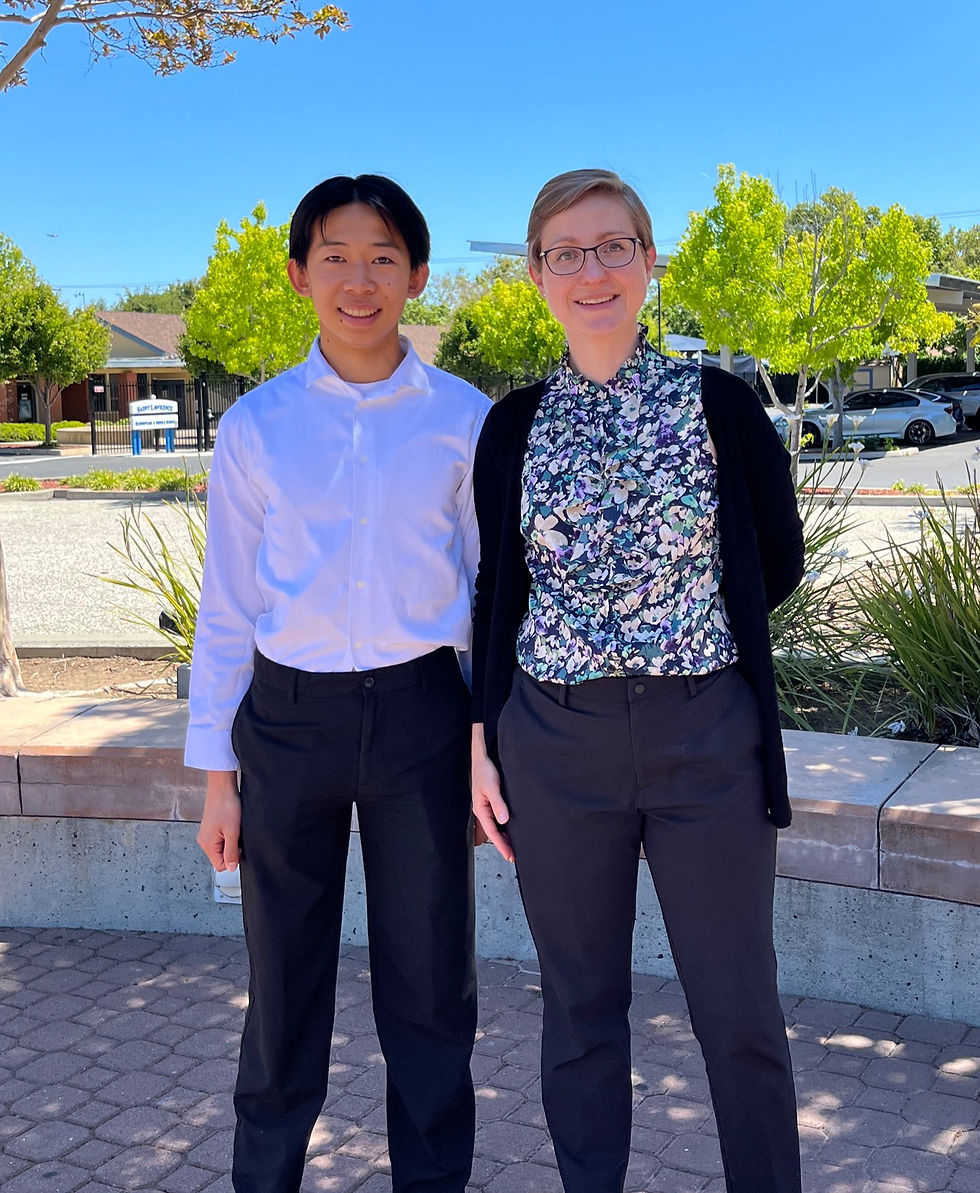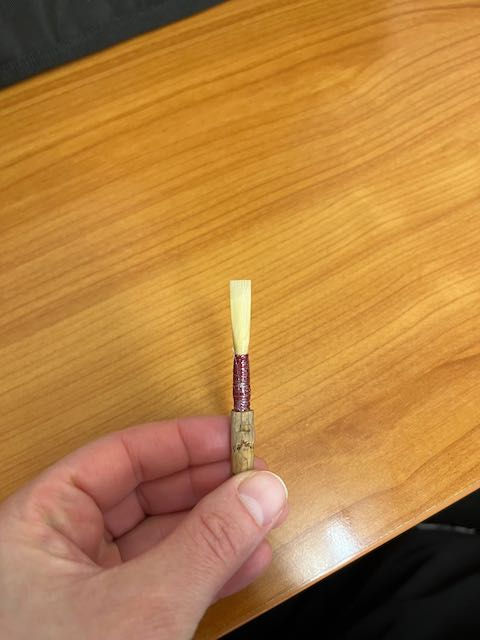2 ways to build student confidence and have better performances!
- agessneroboe
- May 17, 2022
- 4 min read
If we’re connected on social media, you may have seen my weekend post after some of my students performed in the Spring semester recital I put on with a colleague. The performers did really well, and were able to showcase many new skills they’ve been developing over the last 5 months.

As proud as I am, I also think the way we talk with students about their performance AFTER the fact has as big an impact as how we coach them to prepare for the performance. There are a few elements of post-performance conversation that I think you could utilize with your whole band to help build confidence and change student’s musical self-talk that will ultimately be more successful in getting the message across.
1. Acknowledge successes!
One big way to help students gain confidence after a performance is to highlight the things that absolutely went right, NOT the things that went wrong.

Kian (photo above) is a sophomore in high school. We’ve been working together remotely since 2020, and he picked maybe the hardest of the three Handel Oboe Sonatas (#3 in F major) to play this semester. On Saturday, he played the first two movements of the Sonata. The first movement adagio went really well, and the second movement allegro didn’t go as well.
In our conversation yesterday, we were able to list out 5 or 6 elements that he was proud of including:
Conquering his fear of performing a solo piece
Not getting thrown off by his mistakes
Using dynamic contrast well
When we got around to discussing what he learned from the experience and what he’d do differently for the next recital, HE was the one who said “next time I need to over-plan and over-prepare”.
We know that our students know when they’re not prepared for a performance. It’s the elephant in the rehearsal room! But the magic happens when students have a safe space to say it out loud, and write it down. That engages two different parts of the brain (the writing and the talking parts, forgive my non-scientific language), and will help students remember what they learned better!
Kian knows how it feels to do well one a part of a performance, and because we looked at the positives the first time, he didn’t seem to beat himself up about not practicing enough, and he’ll have an experience to rely on to help build his new pre-recital practice habits for the next recital.
2. Use positive language to describe what they want to do next time
We teachers know that self-talk can get a student into or out of trouble, into or out of a good result on a test or evaluation, and into or out of a great performance. We also know that the way we say what we say really matters.

I also think the way we (people) speak to ourselves internally has a big effect on our possible performance outcomes. In the classroom, YOU can change how students speak to themselves by using these post-concert conversations.
Let’s take the case of Richard. He surprised himself AND me with his super expressive performance on Saturday. In the weeks leading up to the recital, he was consumed with other activities - orchestra concert, at least 4 AP tests, at least 3 Track meets, and on and on. During his lessons, we’d spend sometimes 25 minutes just working on sound production and trying to get the tone he wanted.
In that process we discussed the words he was using in his internal monologue. He was using negative phrases like “don’t squeeze” and “stop puffing your cheeks out”, but when we turned those into more neutral instructions “open embouchure” and “cheeks in”, he was able to USE those cues effectively not only in his warm up but also in his solo piece.
After the recital he said that he surprised himself at the tone he was able to get and that he had been able to access the dynamic contrast we’d practiced without sacrificing tone (this is the cheeks in/open embouchure part). He seemed to feel positive about what he’d done, and be in good spirits! I think this can be attributed to replacing the negative self-talk with neutral or positive instruction instead.
The TL/DR:
As you have your final concerts of this year, I encourage you to take time in the class afterwards to do some reflection with your students. By speaking and writing down the positives, you reinforce their confidence in their abilities.
Then, as you talk about what they learned, and what they’d like to do differently at the next concert, challenge them to re-word their criticisms into a neutral or positive instruction. I don’t think you need to do it for them, but engage with them and let them come to the answer. By giving them concrete, actionable, and positively (or neutrally) worded directions for improvement you help them change their self-talk and they’ll be better for it!
Wishing you great final concerts,
Alli




Comments